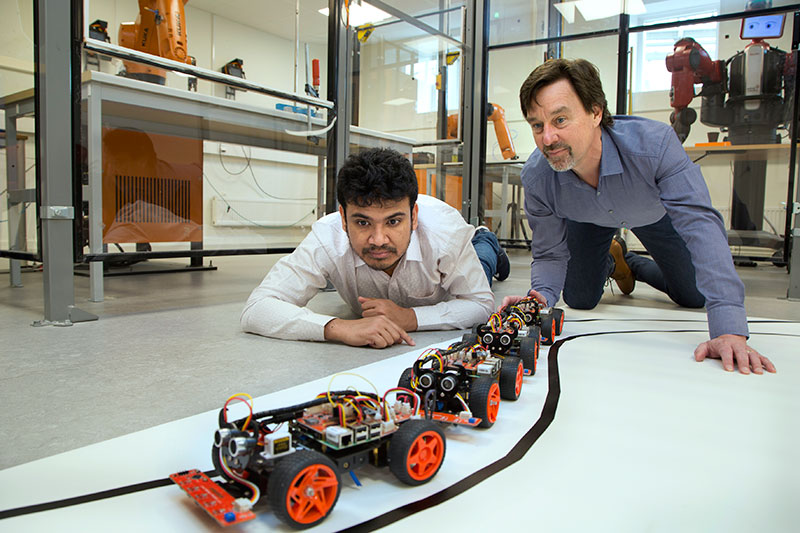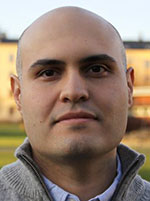While many other higher education institutions are moving more and more towards mere simulations, University of Gävle has chosen a different path. Here, engineering programmes contain many laboratory elements. This is a conscious choice made partly because the University is strong in measurement technology and partly because there is a demand for testing simulations against reality.
“We are keeping our labs and we are almost the only ones in Sweden doing that. Our labs are fantastic resources both when it comes to education and to demonstrate industrial applications,” Niclas Björsell says.
Unique in transferring knowledge to the industry
Automated vehicles in convoys make is possible to exemplify how the control systems used in the industry can be made secure, even though radio communications are exposed to various types of disturbances and external factors.
In industry, it can also be about machine-machine collaboration, for example a robot that is to hand over to the next system in the process, a self-driving truck, or about production and maintenance planning.
“It's a great way to demonstrate industrial applications, which makes it widely appreciated by companies, and we are unique in transferring this type of knowledge to industrial processes.
“Because we are good at automation here in Sweden, we have been successful in bringing production home to Sweden. If we are to have any industry in Sweden, this is necessary; it’s our only chance,” Niclas Björsell says.
"The fun factor"
Amir Dadash wrote his degree project at University of Gävle and is now a doctoral student here. He chose Gävle as it was the only university in Sweden specializing in this field in automation that offered lab opportunities. As he had previously worked in automation, he could determine that the academic staff at Gävle is strong in the field and that this is a well-designed programme.







